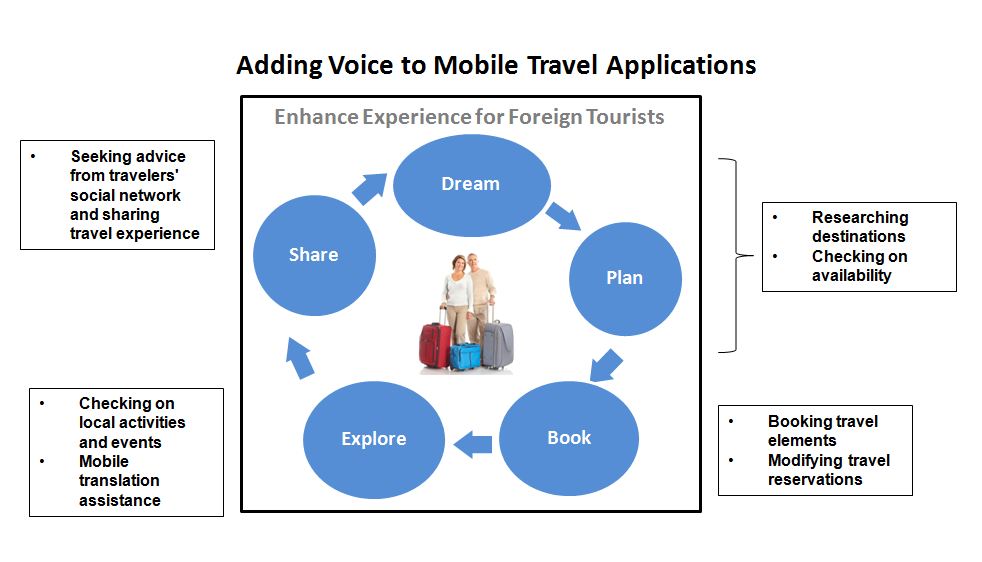- Have any questions?
- Office: +1 (650) 345-8510
- Mobile: +1 (650) 576-6916
- norm@traveltechnology.com
Why Voice Interaction Will Change Mobile Travel
Privacy versus Personalization
December 6, 2011How OS Travel Buttons (iTravel, Google Travel) Will Change the Mobile Travel Landscape
March 8, 2012Last year I completed a number of intense research projects on mobile travel trends. This includes two reports for Amadeus –Navigating the Airport of Tomorrow and The Always Connected Traveler: How Mobile will Transform the Future of Air Travel. I also was the lead analyst for the PhoCusWright Special Report Mobile Hits the Mainstream. These projects involved in-depth interviews with technology and travel companies worldwide. One interesting fact I learned from all this research is that our industry is somewhat turning a deaf ear to the next big shift in mobile travel interactions : voice. (pun intended)
Voice response is not a new concept. Consumers interact with voice response on a daily basis often with less than perfect results. Whether it is your car’s GPS or an automated voice at your favorite airline, today voice technology can be a frustrating experience. Why then do I believe that mobile voice interaction is the next major wave in mobile travel interactions? The answer is simple, improving voice technology is emerging that will enable the capture of speech that lacks fluency. Speech integration is often difficult to implement because of the way people actually talk, with conversations filled with pauses,utterances, slang and sometimes vulgarity.
I am fortunate to be working with a new Silicon Valley client, a start-up named Fluential. This company has solved the lack of fluency issue. Their innovative mobile voice response technology was initially funded by DARPA and resulted in a mobile application used by soldiers in Iraq and Afghanistan to help with translations. The secret sauce of the application is their inference engine which has the ability to understand the natural lack of fluency that is part of language. Their commercial product is now used in hospitals (Kaiser Permanente in the Bay Area) for language translation for nurses when an interpreter is not available. In addition to the translation capabilities of the software, Fluential can create a frontend to any travel application enabling voice response. Here is the real promise. It is my belief that mobile bookings will not really take off until we have an easy way to interact with our mobile device. Voice interaction is being embraced in the market with the introduction of Apple’s Siri on the iPhone 4GS and Google Voice. As the consumer becomes accustomed to interacting via voice with their mobile device, their expectations of travel apps doing the same will increase, but expecting Apple and Google to solve this issue for travel is unrealistic. Travel has its own language and thus domain specific voice apps are needed for travel. The diagram above provides a glimpse of how voice will change every step of the travel process. Fluential is looking for travel partners, so please contact me if you are interested in learning more.


